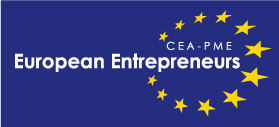It seems SME-Associations have no new ideas, when repeatedly asking for cutting red tape. But everybody that has a company knows what we are talking about. A general culture of mistrust against entrepreneurs and their activities inside the public offices, and the growing tendency of the European Member States to delegate control of laws and guarantees to private company owners, makes it more difficult by very year to comply with the obligations.
For example, recently the Estonian State – wanting to protect people from Radon radiation – obliged the companies that have their offices at the ground floors or in basements, to isolate these rooms in order to protect the health of their employees. The State authorities thought of neither obliging the real estate owners to do so nor asking to public officers to measure the radiation themselves. Instead each single company should do so at its own costs. This is a simple example on how it should not be.
E-GOVERNMENT AND RIGHTS FOR A SIMPLE ADMINISTRATION
- Heavily support the EU-wide harmonized introduction of e-government for 90% of procedures, which should use technologies that can communicate among different administrations and countries.
- Include entrepreneurs as co-teachers and testimonials into lifelong-learning training opportunities to public officers of EIPA, in order to understand the needs and difficulties of entrepreneurs.
- Establish a “right for one-stop shop services” by European national administrations, to which one can appeal at the EU’s Court of Justice, in case a Member State requires procedures that are too cumbersome.
- Establish a “right to reject illegitimate administrative burdens”, such as the one described above about radon radiation in Estonia.
- Establish a “right for ‘once only’” in case of administrative documentation requests, in order to avoid representing again and again the same documents to different offices of the same public administration in one country, and preferably in whole Europe (e.g. as the “Service Passport” intended to be).
- Establish a “right to work instead of working for the administration”, which states a maximum amount of days per year, e.g. 5 days, that a company has to work for fulfilling obligations by the public.
- Reduce red tape in workers’ secondments inside the Single Market via secondary national legislation.
- Public tender procedures must be simplified in whole Europe: no additional obligations that are not strictly linked to the services requested, full transparency of procedures and no documentation burdens that SME can’t fulfil or can only fulfil with high additional costs.
Such measures would definitely increase the support by SMEs for a common Europe!



